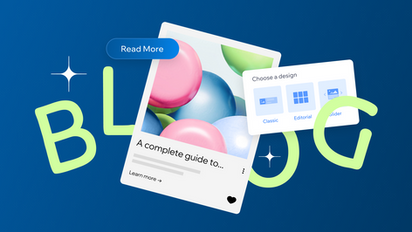Building a Website for Small Business Best Practices
How to Master Building a Website for Small Business
Building a Website for Small Business
Web hosting is a service that allows individuals and organizations to make their websites accessible on the internet. In simple terms, web hosting is like renting space on a computer server to store and host your website files. This service enables users to publish their website contents online, making it available for viewing by people around the world.

Building a Website for Small Business Challenges
Building a Website for Small Business
What is a Web Developer?
A web developer is a professional who specializes in building websites and web applications. They are responsible for the technical aspects of a website, including coding, design, and functionality. Web developers work closely with clients to understand their needs and create customized websites that meet their specific requirements. They are also responsible for ensuring that websites are user-friendly, easy to navigate, and perform well on different devices and browsers.
Web developers can specialize in different areas of web development, such as front-end development, back-end development, or full-stack development. Front-end developers focus on the design and user experience of a website, using languages such as HTML, CSS, and JavaScript. Back-end developers work on the server-side of a website, managing databases and ensuring that websites run smoothly. Full-stack developers have expertise in both front-end and back-end development, allowing them to work on all aspects of a website.
Skills Required for Web Developers
Web development is a challenging and dynamic field that requires a diverse set of skills. Some of the key skills needed to be a successful web developer include:
1. Proficiency in programming languages: Web developers should have a solid understanding of programming languages such as HTML, CSS, JavaScript, and PHP. They should also be familiar with frameworks and libraries such as React, Angular, and jQuery.
2. Design skills: Good design skills are essential for front-end developers, as they are responsible for creating visually appealing and user-friendly websites. Knowledge of design principles and tools such as Adobe Photoshop and Sketch is important for web developers.
3. Problem-solving abilities: Web developers need to be skilled problem solvers, as they often encounter technical challenges when building websites. The ability to think analytically and troubleshoot issues is crucial in this field.
4. Communication skills: Web developers need to work closely with clients, designers, and other team members to create websites that meet their needs. Strong communication skills are essential for understanding requirements, providing updates, and resolving any issues that may arise.
5. Time management: Web development projects often have tight deadlines, so web developers need to be able to manage their time effectively and prioritize tasks to meet deadlines.
Importance of Web Development
Web development plays a critical role in today’s society, as websites are essential for businesses, organizations, and individuals to connect with their target audiences. Some of the key reasons why web development is important include:
1. Increased visibility: Having a strong online presence is essential for businesses to reach a wider audience and attract new customers. Websites allow businesses to showcase their products or services and provide valuable information to potential customers.
2. Credibility: A well-designed and professional website can enhance the credibility of a business or organization. Websites that are visually appealing, easy to navigate, and optimized for search engines are more likely to attract customers and build trust.
3. Accessibility: Websites are accessible 24/7, allowing businesses to reach customers at any time, regardless of their location. This accessibility can help businesses expand their reach and attract new customers from different parts of the world.
4. Competitive advantage: In today’s competitive market, having a well-designed website can give businesses a competitive edge. A user-friendly website that provides valuable content and a seamless user experience can help businesses stand out from their competitors.
5. Innovation: Web development is constantly evolving, with new technologies and trends emerging regularly. Web developers play a crucial role in driving innovation and creating websites that are responsive, interactive, and engaging for users.
Website builders are online tools that allow users to create their own websites without needing to know how to code or design. These platforms provide a user-friendly interface with drag-and-drop functionality, making it easy for anyone to create a professional-looking website quickly and affordably.
There are many website builders available on the market, each offering different features and pricing plans. Some popular website builders include Wix, Squarespace, Weebly, and WordPress. In this article, we will discuss the benefits of using a website builder and how to choose the right one for your needs.
Benefits of Using a Website Builder
1. Easy to use: Website builders are designed for users with little to no technical skills. The drag-and-drop interface makes it easy to customize the design and layout of your website without having to write a single line of code.
2. Cost-effective: Hiring a professional web designer can be expensive, especially for small businesses or individuals on a tight budget. Website builders offer affordable pricing plans that include hosting, domain registration, and customer support, making it a cost-effective option for creating a website.
3. Customizable templates: Website builders offer a wide range of pre-designed templates that you can customize to fit your brand and aesthetic. These templates are responsive, meaning they will automatically adjust to different screen sizes, ensuring your website looks great on any device.
4. Built-in features: Website builders come with built-in features such as e-commerce functionality, SEO tools, and analytics, making it easy to optimize your website for search engines and track visitor behavior. These features are essential for growing your online presence and reaching a wider audience.
5. Quick deployment: With a website builder, you can have your website up and running in a matter of hours, compared to hiring a web designer, which can take weeks or even months to complete. This quick deployment allows you to start promoting your products or services online sooner.
How to Choose the Right Website Builder
When choosing a website builder, it’s important to consider your specific needs and goals. Here are some factors to consider when selecting the right website builder for your project:
1. Ease of use: Look for a website builder with an intuitive interface and drag-and-drop functionality that makes it easy to customize your website without any technical skills.
2. Templates: Consider the variety and quality of templates offered by the website builder. Choose a platform that provides a range of professionally designed templates that you can customize to fit your brand.
3. Features: Look for built-in features such as e-commerce functionality, SEO tools, analytics, and social media integration that will help you optimize your website for search engines and reach a wider audience.
4. Pricing: Consider your budget and choose a website builder with pricing plans that fit your needs. Some website builders offer free plans with limited features, while others offer premium plans with additional benefits.
5. Support: Choose a website builder that offers customer support through live chat, email, or phone to help you troubleshoot any issues or questions you may have while building your website.

Building a Website for Small Business
Building a Website for Small Business
Conclusion
In conclusion, website builders are a valuable tool for anyone looking to establish an online presence quickly and affordably. These platforms offer easy-to-use interfaces, customizable templates, built-in features, and quick deployment, making it easy for anyone to create a professional-looking website without any technical skills.
When choosing a website builder, consider factors such as ease of use, templates, features, pricing, and support to ensure you select the right platform for your needs. With the right website builder, you can create a stunning website that showcases your brand, products, or services and helps you reach a wider audience online.


